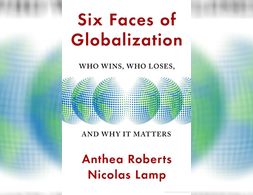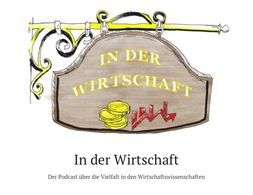80 Ergebnisse
Aim: to work out jointly with students a systematic perception of how the gender factor can impact on economic and demographic development. This course is pioneering: it is the first time that such a course has been introduced into the curriculum of a Russian higher educational institution with a focus on economics.
This graduate-level course examines issues related to women’s paid and unpaid work during a time of rapid integration of world markets. Students will analyze the role of government policy, unions, corporate responsibility, and social movements in raising women's wages, promoting equal opportunity, fighting discrimination in the workplace, and improving working conditions.
This lecture course, which will be taught in English, will deal with gender issues in developing countries. After providing an overview of the gender differences in various aspects of welfare and economic life, the course will then tackle a number of specific issues.
This MOOC (Massive Open Online Course) discusses Global Workers’ Rights and shows instruments and strategies which can be used to implement them.
Why are income inequalities so large and why do they continue to increase in so many countries? What role can minimum wages play in reducing social and economic inequalities? What is a good system of wage bargaining? What constitutes a fair wage?
This course seeks to interpret capitalism using ideas from biological evolution. The lectures are foundational on neoclassical economics and economist, as well as their roles in the proliferation of capitalist ideology. However, it is less concerned with the ultimate judgment of capitalism than with the ways it can be shaped to fit more specific objectives.
How did the industrialized nations of North America and Europe come to be seen as the appropriate models for post-World War II societies in Asia, Africa, and Latin America? How did the postwar discourse on development actually create the so-called Third World? And what will happen when development ideology collapses? To answer these questions, Arturo Escobar shows how development policies became mechanisms of control that were just as pervasive and effective as their colonial counterparts.
Part I: Basic Economic Problems Is Economics a Science? Is It Useful? (Lawrence Boland, Ian Parker) Is There Such a Thing as a Free Market? (William Watson, Robert Prasch) Part II: Consumers and Firms Is Homo Economicus an Appropriate Representation of Real-World Consumers? (Joseph Persky, Morris Altman) Is the Consumer Sovereign?
Economics After the Crisis is an introductory economics textbook, covering key topics in micro and macro economics. However, this book differs from other introductory economics textbooks in the perspective it takes, and it incorporates issues that are presently underserved by existing textbooks on the market. This book offers an introduction to economics that takes into account criticisms of the orthodox approach, and which acknowledges the role that this largely Western approach has played in the current global financial and economic crisis.
Economics: A New Introduction provides a fresh introduction to real economics. Highlighting the complex and changing nature of economic activity, this wide-ranging text employs a pragmatic mix of old and new methods to examine the role of values and theoretical beliefs in economic life and in economists understanding of it.
Thinking in Systems, is a concise and crucial book offering insight for problem solving on scales ranging from the personal to the global. Edited by the Sustainability Institute's Diana Wright, this essential primer brings systems thinking out of the realm of computers and equations and into the tangible world, showing readers how to develop the systems-thinking skills that thought leaders across the globe consider critical for 21st-century life.
In this book, the authors, Cinzia Aruzza, Tithi Bhattcahrya, and Nancy Fraser, move away from the myopic view of feminism for a select few to focus on a universal idea of feminism.
Modern Monetary Theory and the Birth of the People s Economy The leading thinker and most visible public advocate of modern monetary theory the freshest and most important idea about economics in decades delivers a radically different bold new understanding for how to build a just and prosperous society Stephanie …
An ideal type of a pluralistic book. Instead of arguing for one specific interpretation of a complex phenomenon, the authors present six different views on globalisation. Roberts and Lamp carefully balance the different perspectives, presenting the merits of each.
Dabei ging es um den Alfred-Nobel-Gedächtnispreis für Wirtschaftswissenschaften (2019) und wir konnten mal genau nachhaken, was es mit diesen „Randomised Controlled Trials“ in der Entwicklungsökonomik auf sich hat.
It is fiercely debated when exactly the growth set off and what the drivers of Indian growth were. Scott Alexander summarises some of the recent literature on this question, demonstrating that not only the liberalisation policies of the 90s might be the driver of the take-off, but potentially public investments, political developments or cultural shifts.
Wir nutzen Cookies. Klicke auf "Akzeptieren" um uns dabei zu helfen, Exploring Economics immer besser zu machen!












